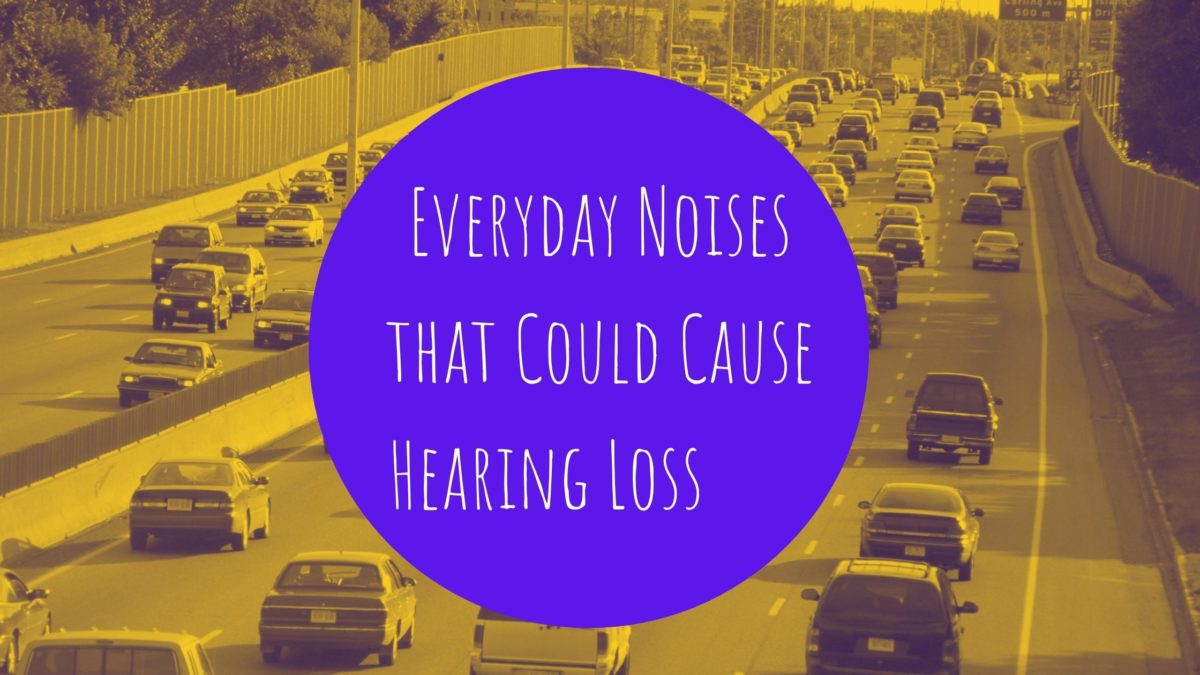
Everyday Noises that Could Cause Hearing Loss
Our world has always been full of sound and it only continues to grow louder and louder. If you live in a city, this might seem obvious, as you are constantly exposed to the sounds of street traffic, music coming from windows and construction. Even in the suburbs or country there are sounds we are exposed to which make our world noisy. Some of these sounds may even come from within our own home.
Sounds can enrich our world and even release dopamine, increasing our joy, but there is certainly such a thing as too loud! When sounds reach a threshold, they become noise and not only are they stress producing but they can cause hearing damage. Understanding the source of some of these harmful noises can help us avoid hearing loss. Some of these sources may surprise you!
Noise Induced Hearing Loss
Noise induced hearing loss can be caused by a short very loud blast or a lower, but still dangerous level of noise, over a long period of time. The louder the sound the less time it takes for it to affect your hearing permanently. Now due to our world which is ever increasingly subject to loud noise, hearing loss is becoming more prominent for a younger generation. Previously associated with old age, currently, the National Institutes on Deafness and Other Communication Disorders (NIDCD), reports that about 15% of Americans between the ages of 20 and 69 have noise induced hearing loss. Many of these exposures happen in a workplace where you may be exposed to loud noise for eight hours a day or more, day after day, week after week, however studies find that half of those with noise induced hearing loss do not work in noisy professions. This means that much of the damage is caused by exposure to noise during recreational activities
Understanding When Your Hearing is at Risk
Sound is measured in decibels and any sound which reaches 85dB or more has the potential to damage your ears. 85dB in the workplace could create significant hearing damage in a decade or more, but as the decibels rise, the time it takes to incur damage decreases. In the workplace it is the responsibility of the employer to measure the decibel level in the workplace and provide hearing protection to employees. However, when you are at home or engaging in noisy recreation, it is up to you to monitor the decibel level and wear hearing protection if a threat is detected. Most smartphones have apps you can download, which will easily detect the decibel level in a space. Once you start taking readings of the noise around you, you may be shocked at some household sources of sound that are already causing damage.
Sources of Noise Induced Hearing Loss
Some of the most dangerous sources of noise for your hearing are as common as a home-use vacuum cleaner which can easily reach 85dB. A for-home-use lawn mower can reach up to 90 decibels. The kitchen and bathroom are some of the most dangerous places for your ears, with blenders, food processors and hair dryers easily reaching up to 100 dB. When any of these devices are being run at once they can combine to raise the decibel level quickly. One of the greatest risks to hearing, especially for a younger generation, are headphones and earbuds. These personal listening devices send decibel levels as high as 100 dB directly to your ear canal where people tend to listen for hours on end. Now with seemingly endless amounts of audio and visual media, it is all too easy for people to listen till their hearing is permanently damaged.
How to Prevent Hearing Loss
Know the decibel level in the spaces your frequent most and anticipate when you may be exposed to loud noise. The Occupational Safety and Health Administration (OSHA) states that when hearing protection is worn, one can work under constant levels at 85dB for up to 8 hours. As the decibels rise to 90, the time is half, and at 94dB, it’s only one hour. Any sound which reaches 120dB could cause permanent hearing loss, even after one exposure.
Are you concerned about your hearing abilities? We’re here to help! Make an appointment to have your hearing tested today.
